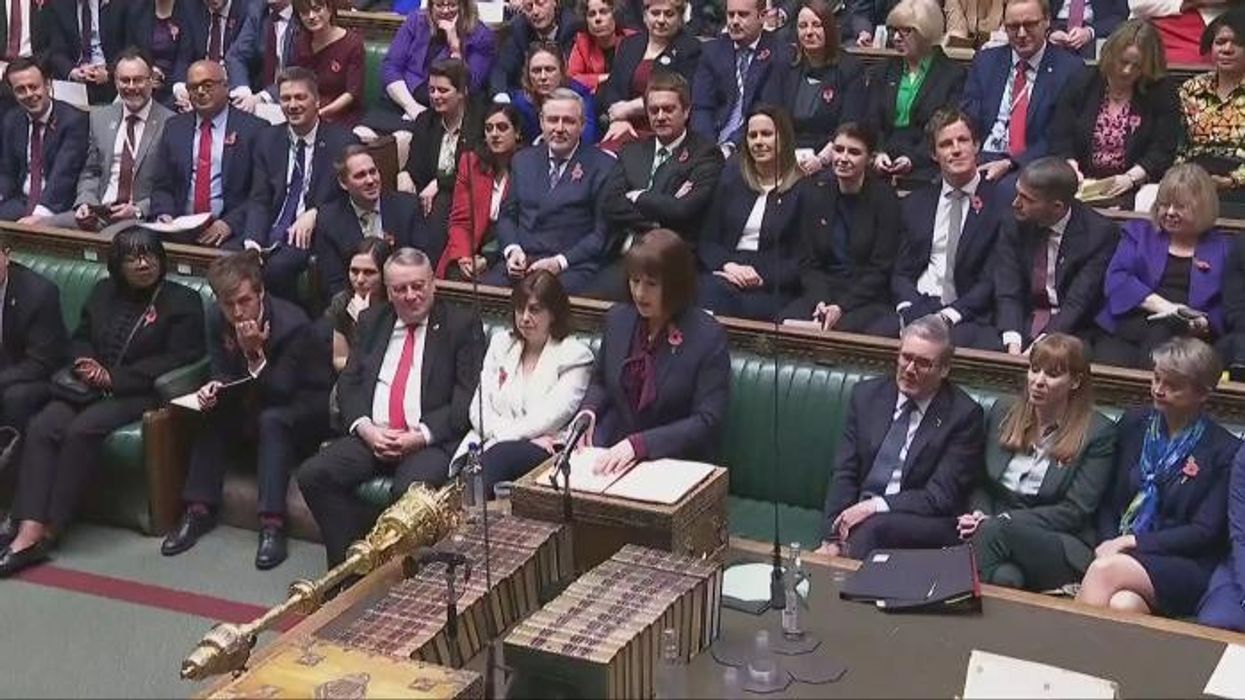Rachel Reeves's capital gains tax hike 'backfires' as Treasury loses £1.7bn amid wealth tax fears

Headline rates of capital gains tax will increase, says Chancellor |
GBNews

Taxpayers have shifted their financial plans to sidestep higher CGT charges, costing the Treasury billions in lost revenue
Don't Miss
Most Read
Latest
Capital Gains Tax (CGT) revenues have plunged following Rachel Reeves's sweeping reforms, and the Treasury now faces questions over whether its strategy has failed.
CGT receipts fell to £11.8 billion in the first half of 2025, down from £13.5 billion during the same period in 2024. This marks a £1.7 billion drop in Government income.
The fall follows the Chancellor's October 2024 Budget, which introduced immediate changes to CGT rates. Basic rate taxpayers saw their CGT rate rise from 10 per cent to 18 per cent, while higher rate taxpayers faced an increase from 20 per cent to 24 per cent.
A new 32 per cent rate on carried interest took effect from April 2025. Business Asset Disposal Relief and Investors’ Relief began to rise in April 2025, with further increases scheduled for April 2026.
Shaun Moore, a tax expert at Quilter, said the policy "has backfired", explaining that instead of boosting revenue, it has prompted behavioural changes among taxpayers that reduced collections.
Annual CGT revenues have already been falling. In 2022 to 2023 they stood at around £17 billion, dropping to £14.5 billion in 2023 to 2024 and just £13.1 billion in 2024 to 2025.
Meanwhile, other revenue sources are growing. Between April and June 2025, PAYE income tax and National Insurance brought in £120.8 billion, an increase of £9.6 billion on the year before.
Moore noted that freezing income tax thresholds has successfully raised more revenue, as more people are pulled into higher bands.
In contrast, the CGT increases have led to taxpayers rearranging their finances to avoid higher bills.

Capital gains tax has plummeted
| GETTY"The policy may have been designed to raise revenue, but it’s instead prompted behavioural shifts that have dented the tax take," Moore said.
He emphasised that reducing CGT allowances while raising rates has not delivered the expected returns. Wealthier individuals, in particular, have responded by adjusting the timing and structure of their asset disposals to minimise tax exposure.
The Government had projected that the CGT changes would raise £90 million in 2024 to 2025 and £1.44 billion in 2025 to 2026. But the latest data suggests those forecasts are likely to fall far short.
The experience has renewed attention on how easily wealthier individuals can adapt when targeted with higher taxes. It also raises doubts over the effectiveness of taxing capital more aggressively.
 Reeves has outlined major changes to capital gains tax | PA Media
Reeves has outlined major changes to capital gains tax | PA MediaMoore explained that the CGT episode should serve as a warning for any future attempt to introduce a broader wealth tax.
Speculation has intensified since Prime Minister Keir Starmer refused to rule out such a move during parliamentary questions on July 9.
Campaigners have previously suggested imposing a two per cent annual levy on individuals with assets over £10 million.
 All pension schemes will be required to offer default routes to retirement income, simplifying choices for savers | GETTY
All pension schemes will be required to offer default routes to retirement income, simplifying choices for savers | GETTYMoore warned that this could also backfire. "While taxing the wealthiest may sound politically appealing, the CGT experience shows that people will change behaviour or adjust their financial plans to mitigate the tax bills."
He added that any new wealth tax could "accelerate the exodus triggered by the abolition of non-dom status", undermining the very revenue it seeks to raise.
As the 2025 Autumn Budget approaches, uncertainty around further wealth-focused tax changes continues to grow.
More From GB News










